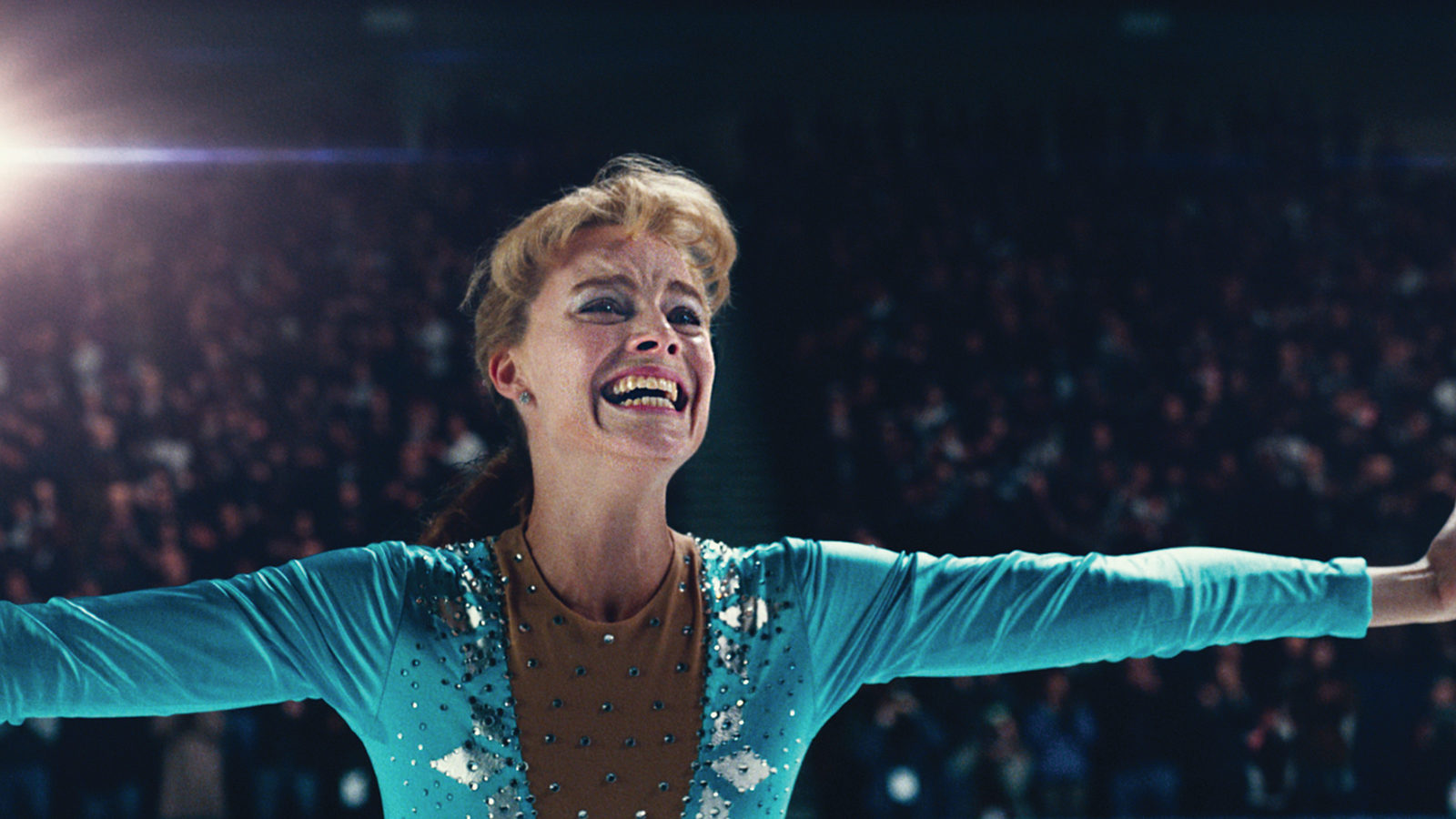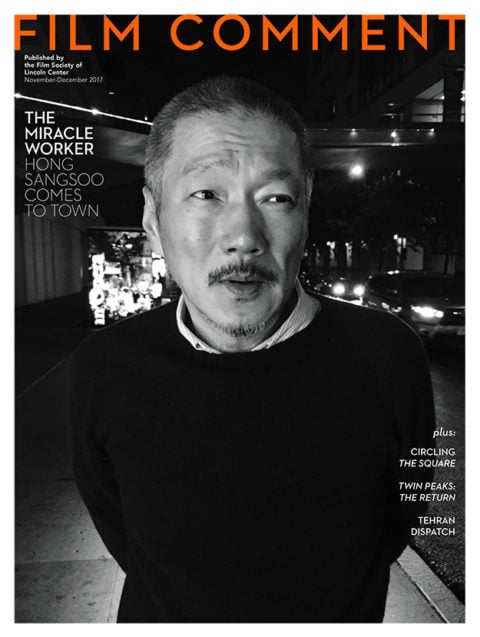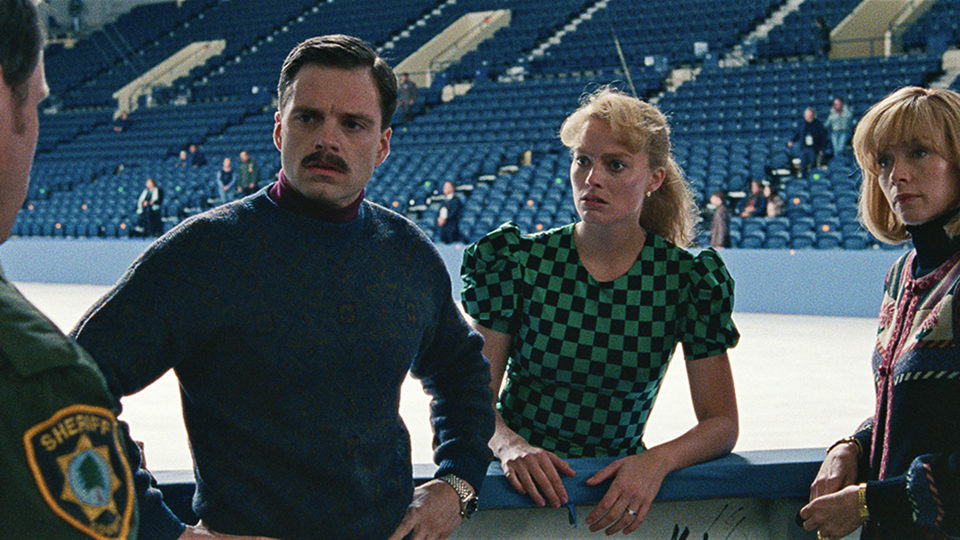By Violet Lucca in the November-December 2017 Issue

Review: I, Tonya
(Craig Gillespie, USA, Neon, Opening December 8)
Hollywood was built on underdog stories, but those underdogs had to be uncomplicated and behave properly on their way to a win, like Rocky, Rudy, or Seabiscuit. The story of ice skater Tonya Harding’s ignoble fall before the 1994 Winter Olympics over an attack on fellow Team USA competitor Nancy Kerrigan is, by contrast, a knotted ball of classism, sexism, and 24-hour-news-cycle hysteria that has only very flawed, difficult humans at its center. Based on “irony-free, wildly contradictory” interviews (per the opening credits), I, Tonya alternately embraces and deconstructs the “white trash versus ice princess” narrative circulated by supposedly respectable (and not at all respectable) journalists. But more than just a campy retelling of a shopworn tabloid tale, Steven Rogers’s screenplay also demonstrates how Harding’s story (much like the O.J. Simpson trial) is a skeleton key to understanding the celebrity-obsessed media and our Trump-era, post-Brexit reality.

From the November-December 2017 Issue
Also in this issue
I, Tonya is firmly on Harding’s side (save for a lightning-quick montage that shows her drinking and eating too much before a crucial competition, in contradiction with her version of events), and posits that although she didn’t know about the plan to injure Nancy Kerrigan, she was fine with undermining her opponent’s confidence before Lillehammer. (The fact is that we’ll never know how much she knew about the attack, as she continues to maintain her innocence to this day.) By the time the Coen Brothers–esque plot against Kerrigan unfolds, we have witnessed Harding (played with charming matter-of-factness by Margot Robbie) hop from the frying pan into a series of increasingly infernal fires. Physically and verbally abused by her chain-smoking stage mother (wondrously bitter Alison Janney) well into adulthood, she moves in with future ex-husband Jeff Gillooly (Sebastian Stan), who also abuses her. When Harding finally summons the strength to leave, she returns to him after being told by a skating judge that she needs to embody more traditional values to truly advance in the sport.
This heartless mandate comes after years of similar judges denying Tonya points for her bodily appearance, homemade costumes, makeup, and musical choices, which her prim, longtime coach also gave her grief for. Comedic but pointed in outlook, I, Tonya portrays a woman who had endured constant abuse and dropped out of high school to pursue the only thing she was ever praised for. The sexism that pervades the sport is inextricable from the abuse she suffers: skating offers her a way out, but only exposes her to further hurt at the hands of the media. And the impossibility of her escaping poverty and harm without skating is reinforced when, during one of Harding and Jeff’s many back-and-forths, a cop pulls Jeff over for speeding but doesn’t ask Harding any questions despite the fact that she’s covered in blood from his manic assault moments earlier.

Harding is attacked from all sides—by an establishment that’s deeply uncomfortable with the type of female physicality and power she represented; a nascent media machine that wanted more content; her mother; her husband; and his somnambulant bestie Shawn (Paul Walter Hauser), who also serves as her duplicitous bodyguard. But I, Tonya still provides plenty of moments of triumph, such as when she successfully executes a triple axel during a competition—the first American woman to do so—and a wide range of black comedy, from Shawn’s wannabe psy-op act to the sardonic way her mother dismisses charges of abuse.
Structured through direct-to-camera interviews, which are re-created verbatim from Nanette Burstein’s 2014 documentary about the saga titled The Price of Gold, the film offers characters who frequently interrupt the events they’re narrating, sometimes stopping mid-sentence to note how absurd or out of control their lives were at that time. While Harding trains in the woods, her coach turns around to confirm to the camera that, yes, the skater really did jog while carrying bags of dog food and flip tires—ironically, similar to stuff that costs quite a bit to do at CrossFit gyms nowadays. The soundtrack, a mix of late-1970s FM rock and early-1990s dance pop, creates a Scorsesean wall of sound that generates as much atmosphere as all the wood-paneled bars and flowery leotards on display.
Though I, Tonya would’ve benefitted from acknowledging that Kerrigan was forever tarnished by the scandal and similarly chewed up by the media (she also came from an economically humble background), the film does succeed in showing the cruelty that lies behind easy punch lines, and the often invisible strength it takes to be a woman.







